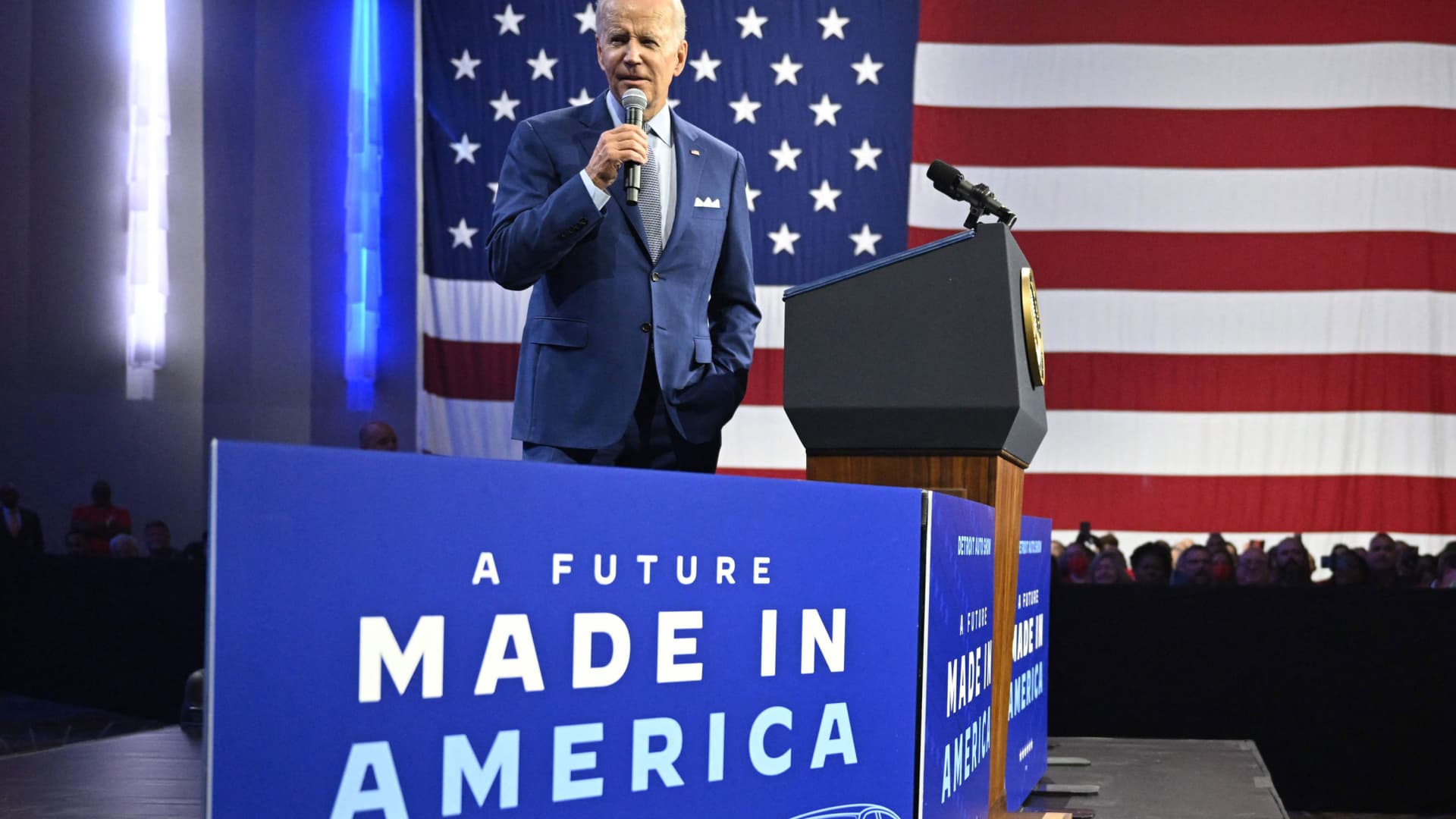US President Joe Biden speaks at the 2022 North American International Auto Show in Detroit, Michigan, on September 14, 2022.
Mandel Ngan | AFP | Getty Images
The Environmental Protection Agency is preparing to announce significant limits on tailpipe emissions this week that would require as much as 67% of new vehicles sold in the U.S. by 2032 to be all-electric cars, according to a report by The New York Times Saturday.
EPA Administrator Michael Regan is expected to make the announcement in Detroit on Wednesday. The proposed limits would be the U.S.’ most aggressive climate regulations to date, and they would create a host of challenges for automakers.
Under the proposed limits, electric cars will represent between 54% and 60% of new cars sold in the U.S. by 2030, and between 64% to 67% of new cars by 2032, the Times report said. These figures are ambitious, as just 5.8% of cars sold in 2022 were electric, up from 3.2% in 2021, according to a report by Cox Automotive.
These limits would also surpass President Joe Biden’s previous goal to have all-electric cars make up around 50% of cars sold by 2030.
“As directed by the President in an executive order, the EPA is developing new standards that will seize on this historic progress to accelerate the transition to a zero-emissions transportation future, protecting people and the planet,” an EPA spokesperson told CNBC in a statement. “Once the interagency review process is completed, the proposals will be signed, published in the Federal Register, and made available for public review and comment.”
The spokesperson declined to provide specific details about the regulations.
Many automakers have already begun to make significant investments in electric vehicles, but forcing such rapid adoption of the technology will present challenges. Large numbers of all-electric cars will require expansive charging infrastructure, for instance.
In February, the Biden administration said it wants to see at least 500,000 electric vehicle chargers on U.S. roads by 2030, and announced a slate of initiatives to help make that a reality, including commitments from companies that build and operate charging networks like Tesla, General Motors, Ford, ChargePoint
and others.
Even if the infrastructure is in place, consumers ultimately have to be willing to adopt electric vehicles, which means companies will also have to be able to maintain reasonable vehicle costs.


